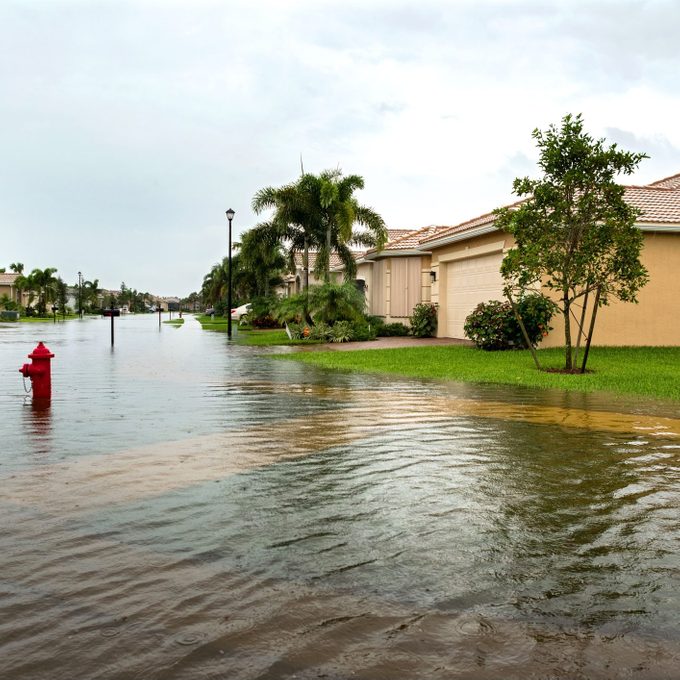What Are Flash Floods?
A flash flood isn’t defined by how big or dangerous it is. Instead, what makes it a “flash flood” is how fast it hits.
Technically, a flash flood is any flood that begins within six hours of heavy rainfall. They’re not typically caused by a mechanical failure like a burst pipe, a blocked drain or a malfunctioning sump pump. Instead, flash floods occur when the amount of rainfall is just too much for drains and soil to absorb. The water pools up instead of draining away, creating dangerously high water levels in a matter of hours.
Preparing for Flash Floods
With flash floods, there usually isn’t much warning before they hit. If you’re not ready for the flood in advance, there most likely won’t be time to gather your supplies before the waters rise. Here are some things you can do to make sure you’re prepared before a flash flood hits:
Pack the Essentials
Have a flood emergency kit ready to go that’s packed with all the stuff you’ll need to stay safe. That kit should include:
- Non-perishable food;
- Water;
- Flashlights;
- Batteries;
- Portable charger for phones and devices;
- Blankets;
- Extra set of clothes;
- Radio;
- First aid kit;
- Dry socks;
- Towels.
Protect Your Valuables
Floods cause a lot of property damage. One way to make sure you don’t lose valuable documents like insurance papers or medical records is to keep them in a waterproof safe as high above the ground as possible.

How to Stay Safe If You’re At Home
The No. 1 thing you need to do in any emergency is listen to the authorities. If you are told to evacuate, do it as quickly and safely as possible. But if you’re stuck in your home during a flood, here are some things you can do to stay out of harm’s way:
- Get to a safe, high point in your home.
- Keep everyone, especially children and pets, out of any floodwaters.
- Be extremely careful around any electrical equipment, open wires or other potential sources of electrocution.
- Periodically check the radio for updates.
- Keep supplies nearby so you don’t have to go far to get them.
How to Stay Safe If You’re In Your Car
Things can get dicey if you’re caught on the roads while a flash flood develops around you. Here’s what you can do to stay as safe as you can if you’re caught in your car during a flash flood:
- If you’re driving and you start to notice waters rising, turn around and search for high ground. Don’t keep driving forward and risk getting stuck.
- Stay off bridges.
- If you are caught on a road that’s starting to flood, get out as quickly as possible and move to higher ground. According to the American Red Cross, the average car can be swept away by as little as two feet of moving water.
- If your vehicle is stuck in floodwaters and water begins to rise inside it, climb onto your roof and wait for help.
Article source here: How To Stay Safe During a Flash Flood

No comments:
Post a Comment